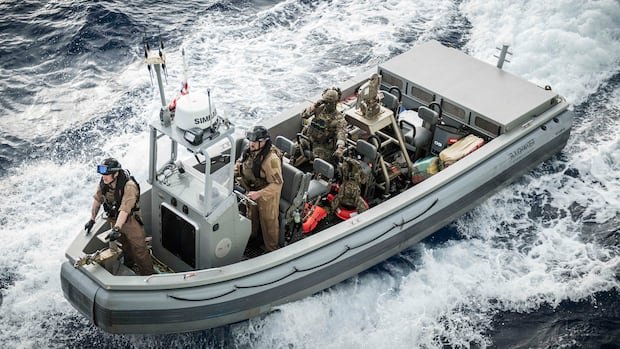Canada’s Department of National Defence confirms its commitment to continuing Operation Caribbe alongside the U.S. Coast Guard to combat drug smuggling in the Caribbean, despite recent deadly U.S. airstrikes in the region. Operation Caribbe, established in 2006, involves the Royal Canadian Navy and Royal Canadian Air Force collaborating with the U.S. Coast Guard to intercept suspected drug vessels and transfer detainees for prosecution in the U.S. In contrast, the U.S. Air Force has employed a more aggressive strategy, conducting airstrikes on four suspected drug boats resulting in 21 fatalities.
Canadian officials have distanced themselves from the U.S. airstrikes, emphasizing that these actions are unrelated to the Canadian military’s operations in the area. Operation Caribbe forms part of a broader multinational initiative known as Campaign Martillo, engaging 14 nations across the Americas and Europe.
Tim Addison, the director of naval affairs at the Naval Association of Canada (NAC), acknowledges the department’s attempt to clarify the situation but remains concerned about the legality and implications of the airstrikes. Scholars have raised questions about the strikes’ legality, with Human Rights Watch condemning them as “extrajudicial killings.”
Amidst ongoing discussions on a new trade agreement between Canada and the U.S., Addison urges the Canadian government to seek clarification from the U.S. regarding the intelligence and reasoning behind the strikes. The NAC, a group advocating for a robust navy, typically refrains from commenting on operational matters but considers this issue significant due to its implications on international law and conflict conduct.
Eric Ouellet, a defense studies professor at Canadian Forces College and the Royal Military College of Canada, highlights the complexities facing Canada in light of the strikes. He emphasizes the importance of avoiding involvement near Venezuela to prevent potential misuse of gathered intelligence in unauthorized operations. Ouellet suggests that focusing efforts on combating other regional challenges, like arms smuggling around Haiti, could be a more strategic approach.
Addressing the detainee’s profiles captured during the operations, U.S. officials have labeled them as low-level cartel members affiliated with groups like the Venezuelan gang Tren de Aragua. The U.S. has attributed the surge in drug trafficking to Venezuela, particularly under President Nicolas Maduro’s leadership, leading to heightened tensions between the two nations.
Operation Caribbe, responsible for seizing 123 metric tonnes of cocaine since its inception, continues to be a crucial joint effort between Canada and the U.S., with ongoing discussions on navigating the challenges posed by recent events.

